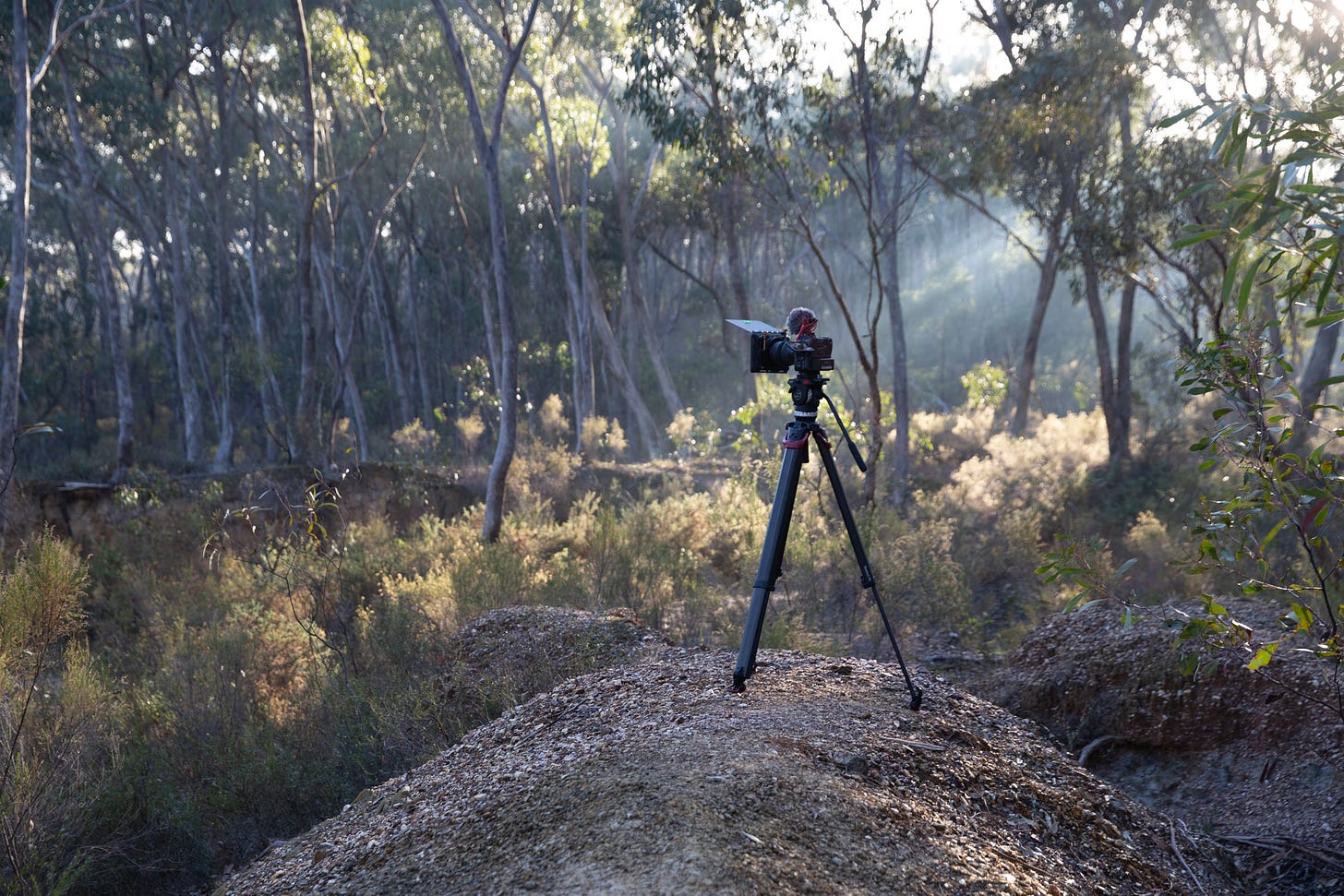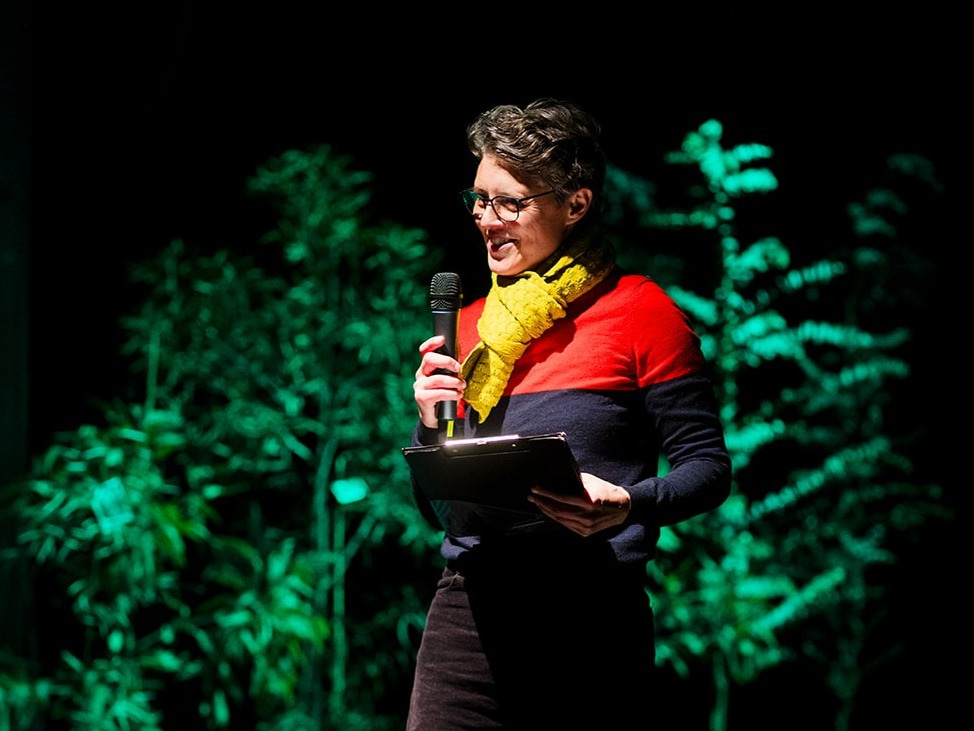Taking Root & Branching Out in my country town of Castlemaine
Reflection on a Listening Event
Delivering work to the audience its made for can be challenging — and podcasting, especially, can feel a little like crouching in a dark cupboard waiting for someone to open the door.
So, Taking Root in Barkers Creek was premiered as a big screen experience at the heart of an event made for the local communities who care about the natural environments of Mount Alexander Shire.
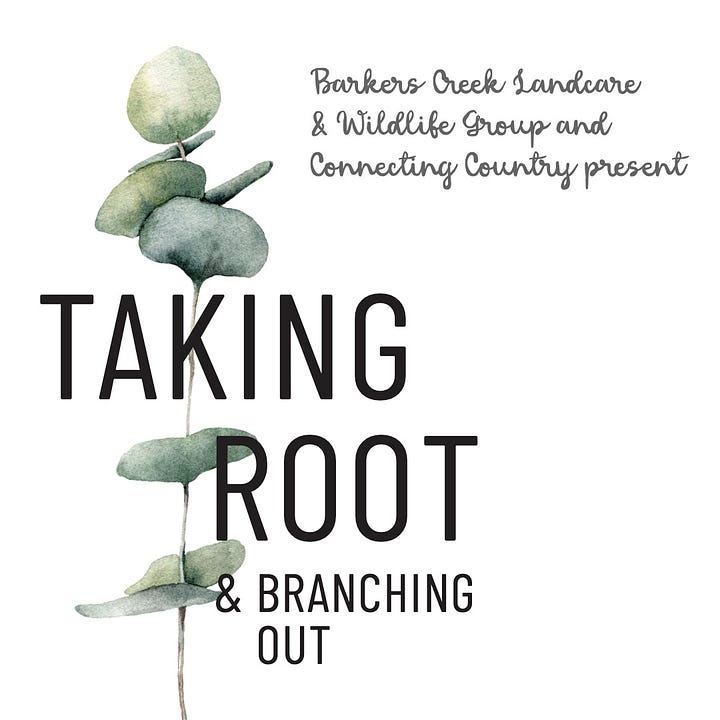
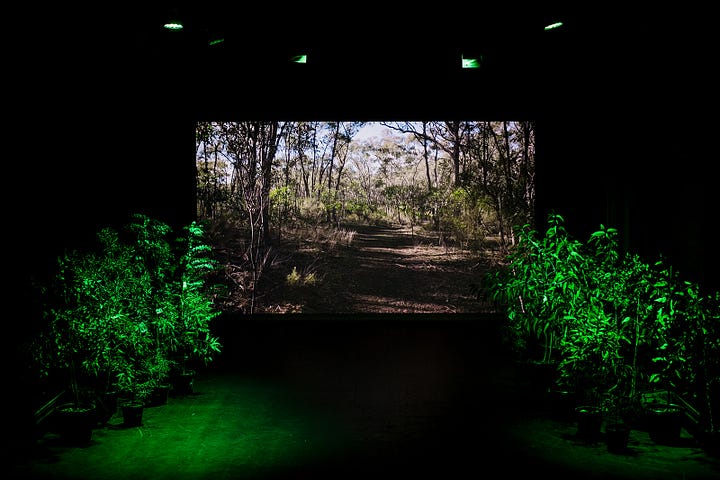
I hope the show stands alone as a story about the long tail of damage wrought by the colonial gold rush, an almost 30 year history of a tiny community group and a broader account of social change and the value of land-caring… but I wanted it to be part of a clear eyed celebration within this region of efforts to halt ecological collapse, and the first step to sharing of knowledge and techniques that might help achieve this goal.
On August 6 2025, I collaborated with Cath Jolly from the Barkers Creek Landcare and Wildlife Group and Lori Arthur from Connecting Country to stage Taking Root and Branching Out. The event was a ‘listening in’ to the show followed by supper and a panel conversation about how we might work better together - linking refugia and connecting the patchwork of care across the natural environments of this shire.
For my part, I was influenced by Kate Lacey’s ideas about creating spaces for people to listen — understanding ‘listening’ as more than hearing but engaging deeply with others. Listening is ‘work,’ often ignored in the quest for ‘having a voice’ — it requires the emotional labour of empathy, being open to difference, intellectually receptive and actively making sense out of what others say. Listening prepares the ground for communication… you might even say that listeners generate speakers — for few speak when nobody is listening.
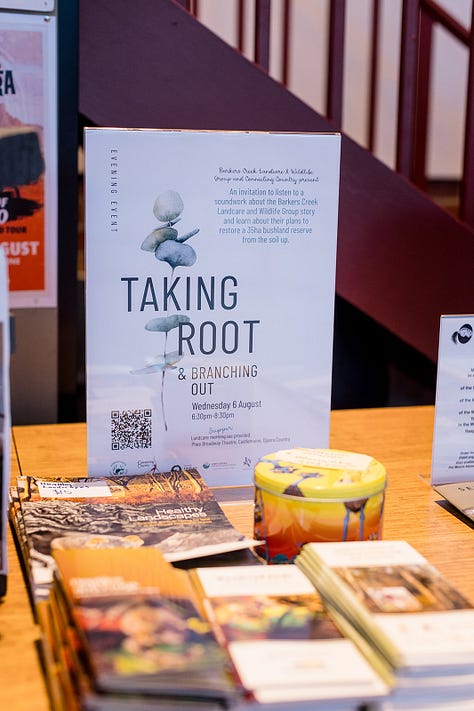
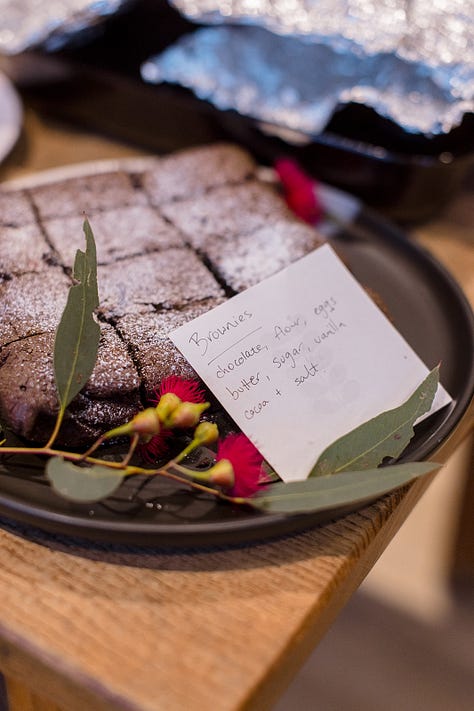
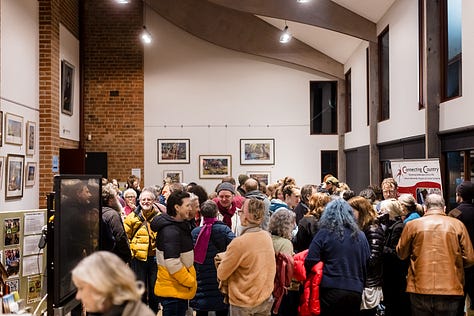
I was a little bit apprehensive about how a group listening event would ‘go down’ in this country town. I was more than usually careful about getting feedback from people who know more than me about how the work might be received with the environment-focused community here. After having the podcast reviewed by the people whose voices appear in it, I asked Cassia Read, Lori Arthur and Rob Law to give it a listen - all three have expertise in both the ecology and community of Mount Alexander Shire. Their feedback was incredibly valuable; revealing my blind spots and honing the work (and reminding me how valuable it is to let a piece ‘settle’ before sending it into the world). I also found that simply imagining a local audience sitting listening to the show, and wondering how they might perceive themselves in the Barkers Creek story led me to make changes I probably wouldn’t have thought of otherwise.
Despite generous reassurances from my test listeners that The People will ‘love it’, I thought it best to try to bread crumb the experience a bit — prepare a visually oriented audience for something a little bit different — so I set it up as a bit more of an installation… a stage half full of potted gum trees with the smell of eucalypt and wattle wafting in the air through some artful green spotlights - and on the screen a huge slow ambient film of a drone moving through the bushland reserve in Barkers Creek at eye level with some binaural landscape recordings.
Initially I had thought I’d run the drone film throughout the audio piece - but a few tests proved this a bit distracting. I’m always amazed at how deeply wired we are to connect things we see and hear together and make sense of it as a whole… so instead, I went for a long slow shot of dawn in the bushland reserve, where the only thing that really moved was the light. This was achieved ‘to time’ by overlaying the first and the second half of the 100 minute recording and messing about with transparency so the light ‘matched’ the story. The link below is to the full cinematic experience.
The film presentation wouldn’t have been possible without local cinematographer Richard Wynn, who made the idea come to life (and thought of the overlay and transparency technique). I’m grateful to Richard’s attention to detail, commitment to excellence and generosity in volunteering weekend time traipsing around the bushland reserve and getting up before dawn to research and record this piece.
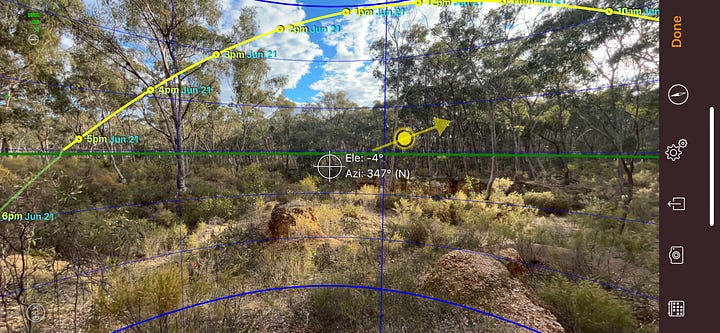
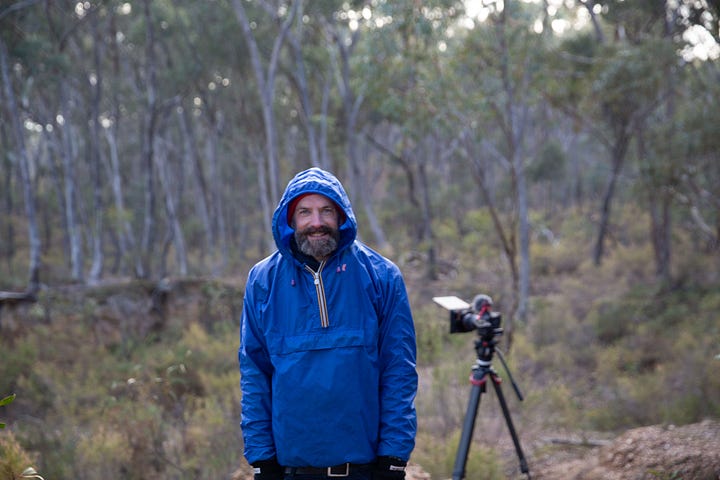
Other key creatives who donated their time and made this work possible are composer Rob Law (master of many trades), designer Elizabeth Geddes, photographer Carmen Bunting and Brian Morris who did the sound mix.
In addition to the documentary, key elements of the event were the set-up, catering and post presentation discussion. Cassia Read gave a fantastic introduction to the work, setting the broad scene with precision and passion, encapsulating the reason why all were gathered and funneling the transition into the more focused story of the group and the podcast.
Another transition that worked well, was the move from the show to the sticky supper, provided by a flotilla of volunteers, mainly from Barkers Creek. The spread of cakes, slices and sweet biscuits mirrored the final scene of the documentary where the where the group has morning tea - so it was almost like walking into the end scene of the show :). Super grateful to friend and fellow Land-carer Karyn McGuire for organising this feast.
The event finished up with a short panel discussion led by the effervescent Sharon Fraser, who masterfully drew the conversation out onto a broader plane, to show how the work of the Barkers Creek group fit in like a jig saw puzzle within the broader context of the shire. On the panel were Cath Jolly from the Barkers Creek group, Paul Foreman from Biolinks Alliance (which does landscape rehabilitation across the state), Brendan Sydes who is on the board of Connecting Country and Oli Moraes, speaking on behalf of DJAARA, formally the Dja Dja Wurrung Clans Aboriginal Corporation.
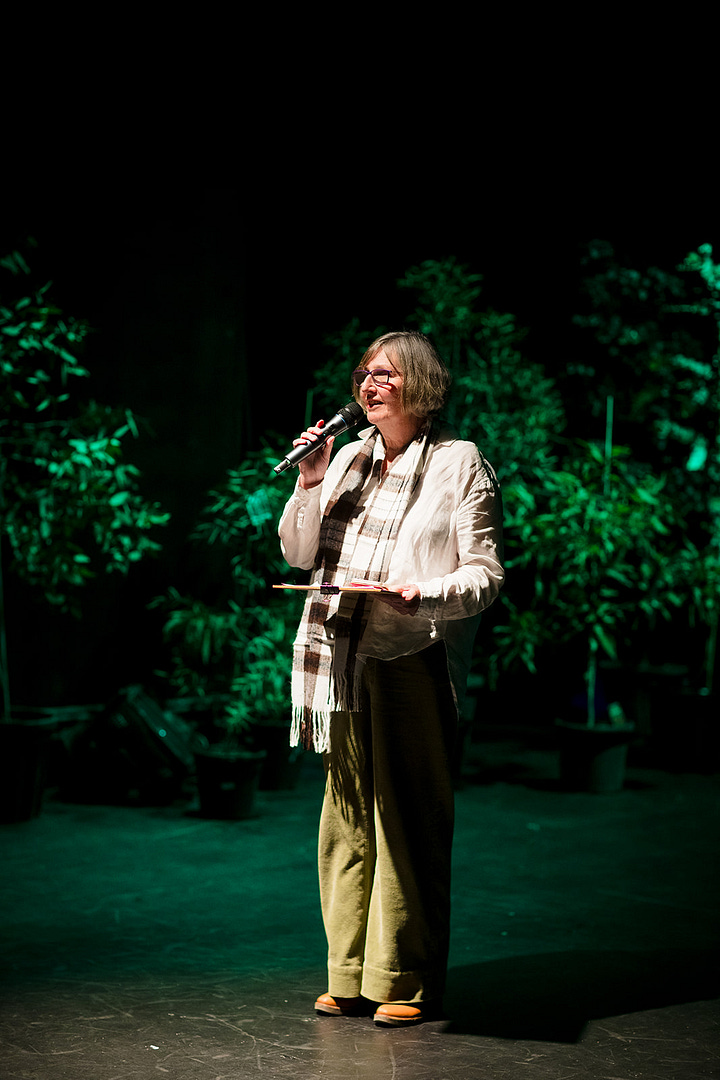
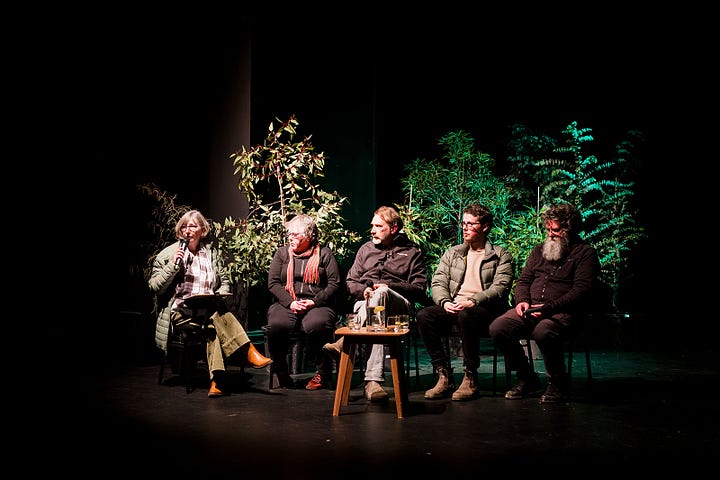
It was important to address the elephant in the room, which is of course First Nations custodianship of this Country that was never ceded, and listen to how the group wanted to lead the process of recovery. Oli made the key point that healthy Country and healthy People go hand in glove, and that one is not possible without the other. It’s clear that all roads of this story of climate change and ecological collapse lead back to the policies of extraction and exploitation epitomised by colonisation.
We have a long way still to travel.
Other’s I’d like to thank for making the night a success are Lois, Nico & Tony, Leonie, Sylvie, Sunny, Zephyr, Arlo, Michelle, Billie, Harvey and Marg. It really takes a village to do anything like this.
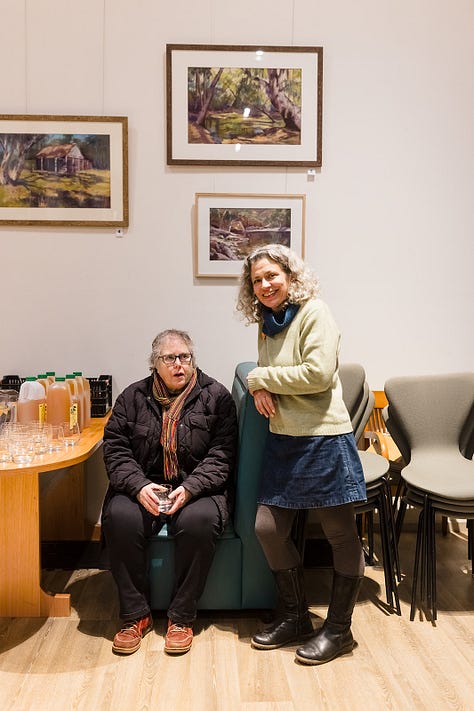
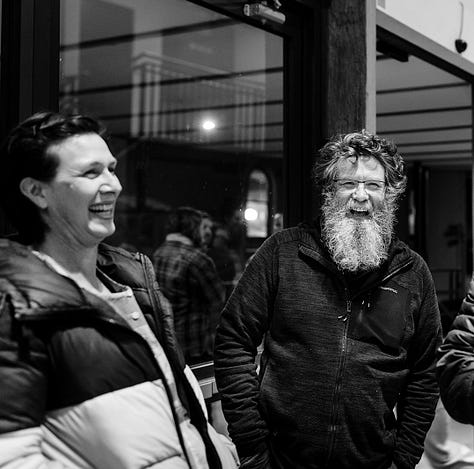
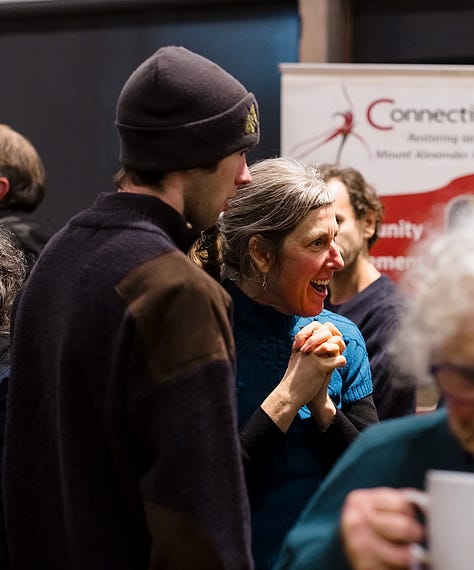
And is made possible with the support of - Mount Alexander Shire Council, The Good Op Shop, Harcourt Apples and ASQ Gardening & Landscape as well as the Victorian Landcare Program, I&SN Foundation and North Central CMA. Many thanks.
So that’s my wrap of this project - please share the link to the podcast where relevant - as that’s the only way it will be heard.

